When you start having children, you really do start to think about things you've never given much thought to. For me it was; "Are the chemicals I am using to clean my home really safe?"
Perhaps you have heard of a little company called Ecover? If not, they are a leading company, sold in many stores such as Publix or Lowes, or your local health food store most likely. If you want to see where to find it, then enter your zip code here. I can personally vouch for them, as I have been purchasing for quite a while. In fact, their Press Relations just sent me these three things, and I am excited to share them with you a best selling item from each of the lines.
(Just to let you know though, they have stopped production on their car and boat items.)
Also, to let you know.... all of the items sent to me worked wonderfully, as expected, and I do recommend you buy them. They are just as affordable as other cleaners. I mean, who are we kidding? People put off buying natural cleaning products because they are expensive? *Scoffs* Have you seen the price of a so-called "good" laundry detergent. Come on now- really?
You can also shop their online store and find something helpful without worrying about your impact on the environment. The chemicals in many household cleaners are carcinogens and very harmful to ground water.
I found this information on this site.
The eight ingredients (below) in household cleaning and home maintenance products that are of particular concern because they are carcinogens, endocrine disrupters or known or suspected reproductive toxins. They are also the most commonly found in household products.
Ecover is one of the safer environmentally-conscious manufacturers that you may want to consider.
In 1987, regulators in the U.S. compelled manufacturers to put warning labels on products containing methylene chloride. The U.S. Consumer Product Safety Commission estimates that since that time, there has been a 55 per cent reduction in the number of cancers that would have been caused by these products.
In the environment, sodium hypochlorite is acutely toxic to fish. The chlorine in bleach can also bind with organic material in the marine environment to form organochlorines, toxic compounds that can persist in the environment.
There may be some circumstances where bleach use is necessary for disease control, but there is little need for it on a regular basis.
Manufacturers have since reduced or even eliminated phosphates from laundry products, but no action has ever been taken on dishwasher detergents. Most of the products available from major manufacturers contain 30-40 per cent phosphates.
As you can see, many cleaning products are simply not safe. If I speak this around older people, they will say, and I quote, "We used them and we're fine."
I say; "Better safe than sorry."
Products from alternative manufacturers such as Ecover are a much better environmental choice.
A good bit of the information quoted in this post became available to me through this site :
http://leas.ca/Toxins-in-Household-Products.htm
Catch up with them on Facebook
Follow them on Twitter @EcoverUS
Please read Ecover on their Blog
*Disclaimer* I received one or more of the products or services mentioned above for free in the hope that I would mention/review it on my blog. I only recommend products or services I use personally and believe will be good for my readers. I am disclosing this in accordance with the Federal Trade Commission’s 16 CFR, Part 255: “Guides Concerning the Use of Endorsements and Testimonials in Advertising.” The opinions expressed in this post are entirely my own. Your experience with the product may differ from mine.
Perhaps you have heard of a little company called Ecover? If not, they are a leading company, sold in many stores such as Publix or Lowes, or your local health food store most likely. If you want to see where to find it, then enter your zip code here. I can personally vouch for them, as I have been purchasing for quite a while. In fact, their Press Relations just sent me these three things, and I am excited to share them with you a best selling item from each of the lines.
Here's what I was sent:
(Just to let you know though, they have stopped production on their car and boat items.)
Also, to let you know.... all of the items sent to me worked wonderfully, as expected, and I do recommend you buy them. They are just as affordable as other cleaners. I mean, who are we kidding? People put off buying natural cleaning products because they are expensive? *Scoffs* Have you seen the price of a so-called "good" laundry detergent. Come on now- really?
You can also shop their online store and find something helpful without worrying about your impact on the environment. The chemicals in many household cleaners are carcinogens and very harmful to ground water.
I found this information on this site.
The eight ingredients (below) in household cleaning and home maintenance products that are of particular concern because they are carcinogens, endocrine disrupters or known or suspected reproductive toxins. They are also the most commonly found in household products.
Ecover is one of the safer environmentally-conscious manufacturers that you may want to consider.
2-butoxyethanol
Used as a solvent in carpet cleaners and specialty cleaners. It can be inhaled or absorbed through the skin and may cause blood disorders, as well as liver and kidney damage.Ethoxylated nonyl phenols (NPEs)
This is a group of endocrine-disrupting chemicals still used in cleaning products. The threat posed to the environment by nonyl phenols prompted the European Union to ban them from all cleaning products manufactured or used in the EU.Methylene chloride
For years, people have been using methylene chloride, or products containing methylene chloride, as a paint stripper. Methylene chloride is listed as a possible human carcinogen (Group 2B) by the International Agency for Research on Cancer (IARC).In 1987, regulators in the U.S. compelled manufacturers to put warning labels on products containing methylene chloride. The U.S. Consumer Product Safety Commission estimates that since that time, there has been a 55 per cent reduction in the number of cancers that would have been caused by these products.
Naphthalene
or another chemical called paradichlorobenzene, is used in moth balls and moth crystals. Naphthalene is listed by California's Office of Environmental Health Hazards Assessment as a substance "know to the state to cause cancer," while paradichlorobenzene is listed by IARC as a possible human carcinogen.Silica
Made from finely ground quartz, silica is carcinogenic when it occurs as fine respirable dust.Toluene
Toluene is a potent reproductive toxin, which is used as a solvent in numerous products, including paints. Toluene is listed by California's Office of Environmental Health Hazard Assessment as a reproductive toxin that may cause harm to the developing fetus. Pregnant women should certainly not use products containing toluene.Trisodium nitrilotriacetate (NTA)
Used as a builder in laundry detergents, NTA is listed as a possible human carcinogen (IARC 2B) by the International Agency for Research on Cancer. It also has an adverse environmental impact because it can impede the elimination of metals in wastewater treatment plants.Xylene
Another extremely toxic ingredient that is often found in graffiti and scuff removers, spray paints and some adhesives, is xylene, a suspected reproductive toxin that has shown reproductive harm in laboratory experiments. It is also a neurotoxicant that can cause memory loss on repeated exposure.Bleach (Sodium hypochlorite)
When bleach is mixed with acids (typically found in toilet bowl cleaners), it reacts with them to form chlorine gas. When it is mixed with ammonia, it can create chloramine gas, another toxic substance.In the environment, sodium hypochlorite is acutely toxic to fish. The chlorine in bleach can also bind with organic material in the marine environment to form organochlorines, toxic compounds that can persist in the environment.
There may be some circumstances where bleach use is necessary for disease control, but there is little need for it on a regular basis.
Phosphates
Phosphates were a high-profile public issue three decades ago when streams and lakes were becoming choked with vegetation in a chemical process known as eutrophication. The process was the result of widespread use of phosphates in laundry products which produced nutrients for algae and other aquatic plants as phosphate-rich wastewater entered the environment.Manufacturers have since reduced or even eliminated phosphates from laundry products, but no action has ever been taken on dishwasher detergents. Most of the products available from major manufacturers contain 30-40 per cent phosphates.
As you can see, many cleaning products are simply not safe. If I speak this around older people, they will say, and I quote, "We used them and we're fine."
I say; "Better safe than sorry."
Products from alternative manufacturers such as Ecover are a much better environmental choice.
A good bit of the information quoted in this post became available to me through this site :
http://leas.ca/Toxins-in-Household-Products.htm
Catch up with them on Facebook
Follow them on Twitter @EcoverUS
Please read Ecover on their Blog
*Disclaimer* I received one or more of the products or services mentioned above for free in the hope that I would mention/review it on my blog. I only recommend products or services I use personally and believe will be good for my readers. I am disclosing this in accordance with the Federal Trade Commission’s 16 CFR, Part 255: “Guides Concerning the Use of Endorsements and Testimonials in Advertising.” The opinions expressed in this post are entirely my own. Your experience with the product may differ from mine.
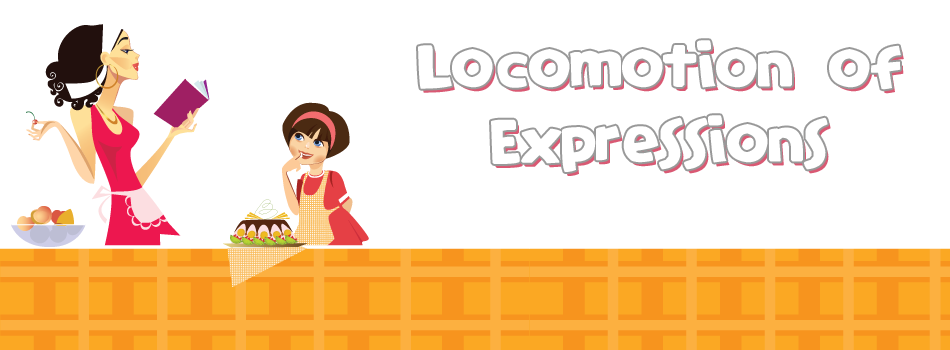
















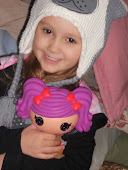






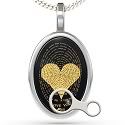







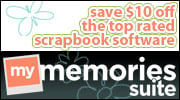



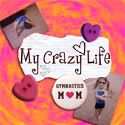







1 comments:
Thank you so much for giving Ecover's Automatic Dishwashing Powder ZERO and Laundry Liquid Concentrate ZERO a try! We are happy to hear they worked wonderfully and that you are recommending them to your readers. Enjoy your clean clothes and dishes ... and take care!
-Deb for Ecover
Post a Comment
Wait! If you are entering my giveaway, please make sure you are following my blog through Google Friend Connect. It is NOT mandatory -However, karma begs that you do! Here's why; the more followers this blog has, the more great things I can continue to bring you. Remember in order to win on Locomotion of Expressions, all you have to do is place one comment stating that you want to win.